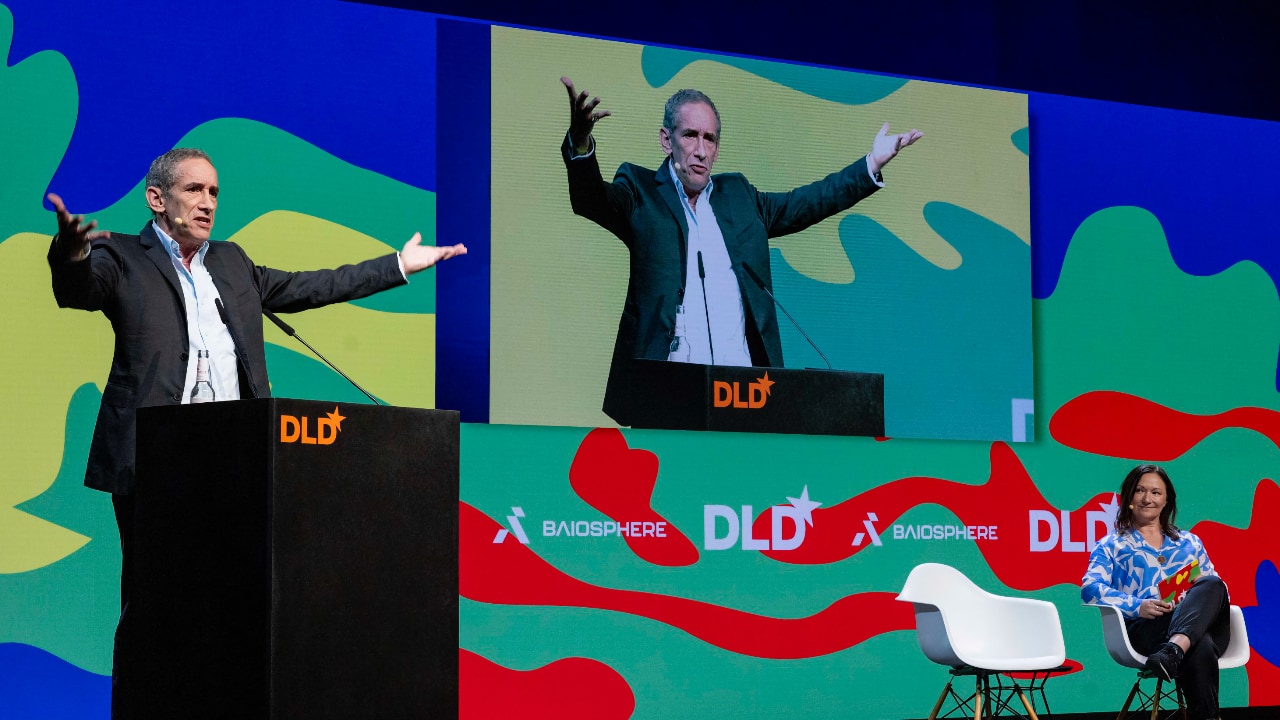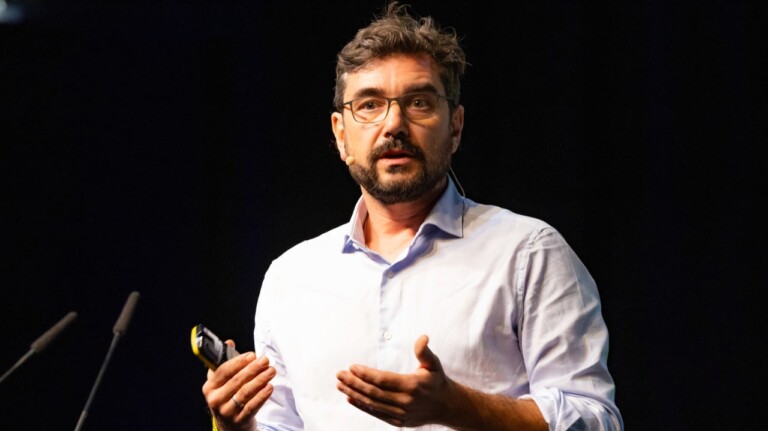Technology has the power to liberate humans – but too often it is used to reinforce old systems of control. Author Douglas Rushkoff opens this DLD Future Hub session with a passionate talk that puts the development of AI into historical perspective, before he’s joined by Katja Speck (VisualVest) for a discussion that explores his thoughts further.
“What happens historically is that some new kind of technology, a new age happens, and it creates some wobble and possibility in the existing civilization”, Rushkoff says. But time and again, the powers that be are “resisting the potential of the technology to enhance human flourishing.”
The risk with AI is that it will follow the same trajectory, Rushkoff warns. “We talk about how we have this new technology to save labor.” But does it really save labor?, he asks. “There are thousands of people who sit and tag the data manually for an LLM”, the large language models that power chatbots and rely on human training. “So, yes, we’re getting rid of some middle management, but we’re creating lots of jobs that I don’t think most of us would want.”
Rushkoff challenges the notion that AI should be either feared or worshipped. “LLMs are the first native app of the Internet”, he argues, capable of collecting and presenting vast amounts of online information. But seeing chatbots simply as a way to “get to the answer” or find a product is “industrial age thinking”, Rushkoff says.
The true opportunity of AI, he argues, lies in “generative thinking”, where AI becomes a tool for iteration and collaboration. “AI can help us”, Rushkoff says. “But if we use it in this stupid industrial way, it’s going to either make us less human, push us further down the food chain, or get rid of us altogether. Not because it’s smart, but because we’re dumb.”
Watch the video to explore this fascinating conversation further, and hear why Douglas Rushkoff believes going offline for one day a week would give “your nervous system a chance to recalibrate”.




